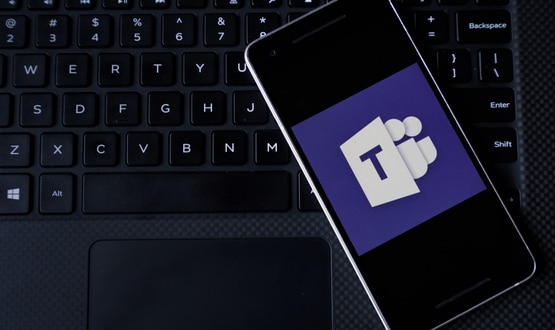More than 65 million Microsoft Teams messages sent since NHS rollout
- 13 October 2020

New figures from NHS Digital have revealed more than 65 million messages have been sent on Microsoft Teams since it was rolled out across the health service.
Nearly four million messages were sent between NHS colleagues in the past week and more than 850,000 meetings were held using the software, out of a total 13.2 million held since the rollout.
NHS Digital rolled Teams out to 1.3m users with NHSmail accounts between 16-20 March 2020. The roll-out was accelerated to help NHS teams better communicate and collaborate around their responses to Covid-19, and counter the increased risks associated with the virus.
Since it was introduced, the platform has been used by NHS organisations to collaborate, share information securely and support new ways of working.
Chris Parsons, who runs NHSmail at NHS Digital, said: “The use of remote messaging and meeting technology like MS Teams has proven to be essential for NHS organisations during the pandemic.
“Many doctors and nurses have had to work remotely to provide effective care, especially to those patients who have been self-isolating, and technology like this can help make it possible.
“There has been a seismic shift in how organisations work over the last few months, and these figures show that the appetite for digital collaboration has increased exponentially over that time, becoming part of the fabric of working life on the front lines.”
Microsoft Teams provides secure instant messaging, direct audio and video calls between NHS colleagues and has virtual meeting capabilities. This can support remote and mobile working, helping staff to work and deliver advice to each other during the coronavirus outbreak.
Nikki Jeffery, urology fellow at University College London Hospitals NHS Foundation Trust, added: “Teams has brought our health professionals together, not only to help us abide by the current restrictions on meeting sizes, but as a practical tool to allow clinicians from many different specialities and departments as well as our multi-disciplinary teams to work together remotely.
“This has allowed for fantastic teaching for junior doctors, has been ideal for allowing input from staff at multiple sites at once and, most importantly, helped us to provide a high level of care for our patients.”





1 Comments
No that everyone is using Teams the next logical step is to connect it to clinical systems using FHIR.
Check out: https://appsource.microsoft.com/en-gb/product/office/WA200001823
Comments are closed.